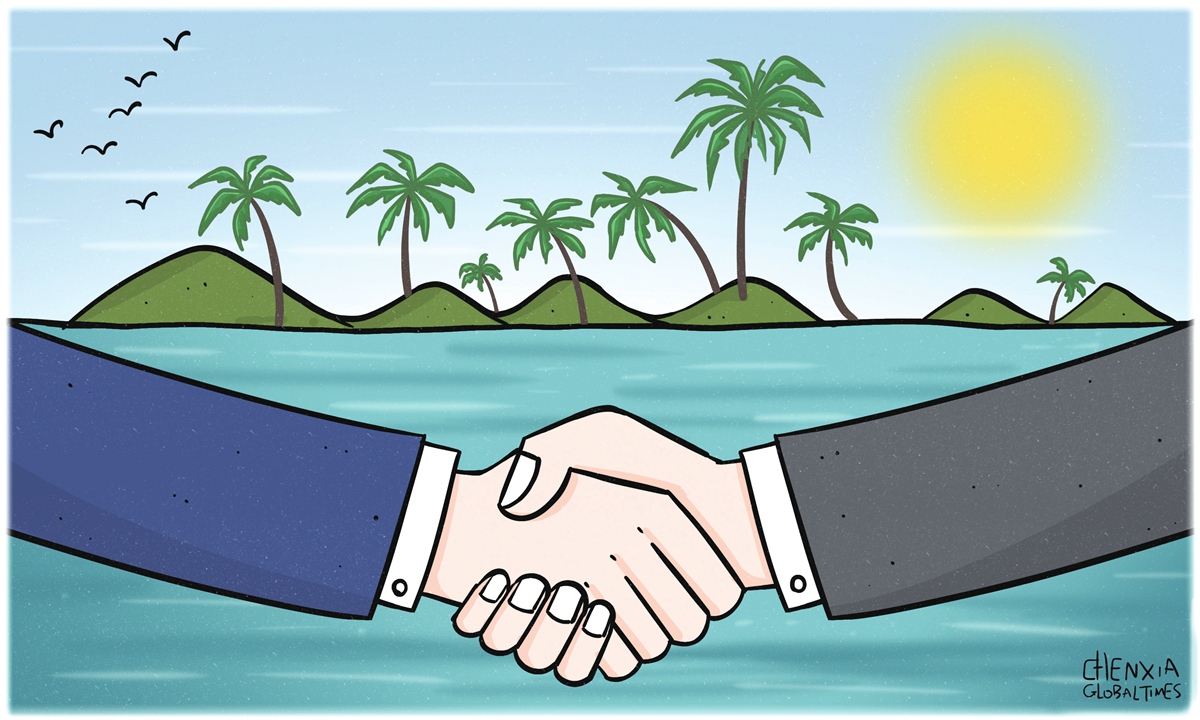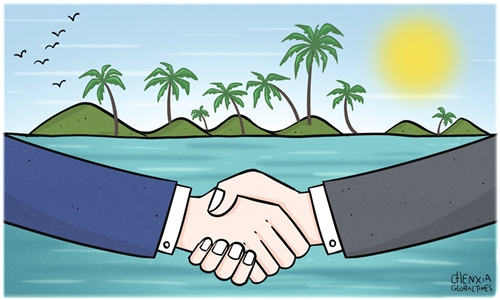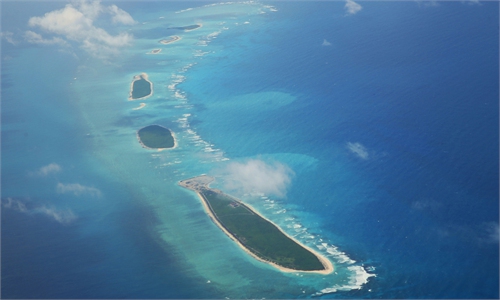
Illustration: Chen Xia/GT
Achieving the Code of Conduct in the South China Sea (COC) is a shared aspiration for regional peace between China and ASEAN members. Hopefully the Philippines will align with other ASEAN members and China over the solving of South China Sea disputes, rather than becoming a regional "offbeat case."Indonesia's Foreign Minister Retno Marsudi said on Tuesday that her country is "ready to work together with all ASEAN member states including the Philippines to finalize the COC in the South China Sea as soon as possible," during a joint press conference with Philippine Foreign Minister Enrique Manalo in Manila, ahead of a visit by Indonesian President Joko Widodo.
As the largest country in ASEAN, Indonesia has consistently demonstrated its positive stance toward the finalization of the COC. Marsudi's statement reflects the shared aspiration of ASEAN countries to expeditiously establish a code of conduct that is acceptable to all regional nations through peaceful negotiations.
The COC is a crucial document negotiated jointly by China and the 10 ASEAN members regarding rules and order in the South China Sea region. Since the resumption of COC consultations in September 2013, many efforts have been made to push for the finalization of the COC. The COC framework was instituted in May 2017, and the Single Draft Negotiating Text came out in August 2018. China and ASEAN agreed in July 2023 to work together over the next three years, aiming to complete COC negotiations by the fall of 2026.
Indonesia's push for the finalization of the COC also indicates the frustration and vigilance of most South China Sea claimant countries toward the Philippines, which has persistently cooperated with external forces and taken various actions differing from those of ASEAN, stirring up unrest in the South China Sea. This not only undermines ASEAN's cohesion, destabilizing its regional position, but also creates obstacles to regional stability and peaceful development.
Recently, the Philippines has frequently challenged China's sovereignty over islands and reefs in the South China Sea, with the latest example being its provocative actions during its second joint patrol with the US. The escalation of tensions between China and the Philippines in the South China Sea is largely fueled by the US. Manila, backed by Washington, is escalating its provocative actions in the South China Sea, leading to the constant worsening of the situation.
Furthermore, the Philippines even attempts to establish a new, separate COC that excludes China. This is not only naive, but it's also deviating from the right path. The South China Sea involves the core interests of China, and China is a crucial participant in relevant affairs. Any separate "code" lacking China's participation is ineffective and unlikely to gain recognition from other ASEAN members.
On December 30, ASEAN foreign ministers issued a statement stating that they "closely follow with concern the recent developments in the South China Sea that may undermine peace, security, and stability in the region." This reflects the earnest hope of ASEAN countries for peace in the region. If the Philippines continues to follow the US, it will only gradually distance itself from other ASEAN members in terms of South China Sea affairs.
The South China Sea issue cannot be prolonged any longer, and a prompt resolution is a shared aspiration of China and ASEAN countries. The commitment to complete the COC negotiations within less than three years primarily relies on the collective efforts of the 11 countries to push the COC forward together. If the Philippines persists in its unilateral actions, it will only further hinder the negotiation progress, leaving potential risks in regional relations and providing opportunities for external forces to continue disrupting the regional situation. As external countries, such as the US, attempt to intervene and obstruct the negotiation process through various means, all countries should maintain the willpower to solve regional affairs on their own. They should avoid being influenced by external forces, and, more importantly, becoming the source of further escalation of tensions in the South China Sea.


